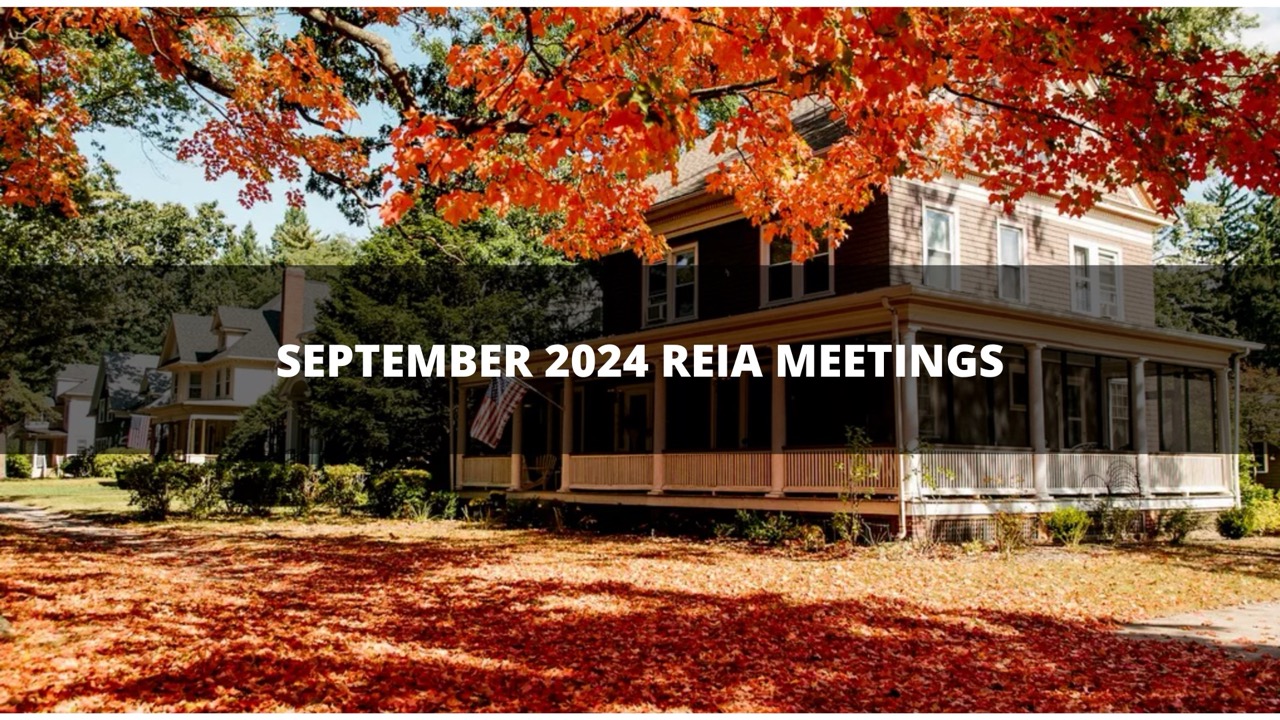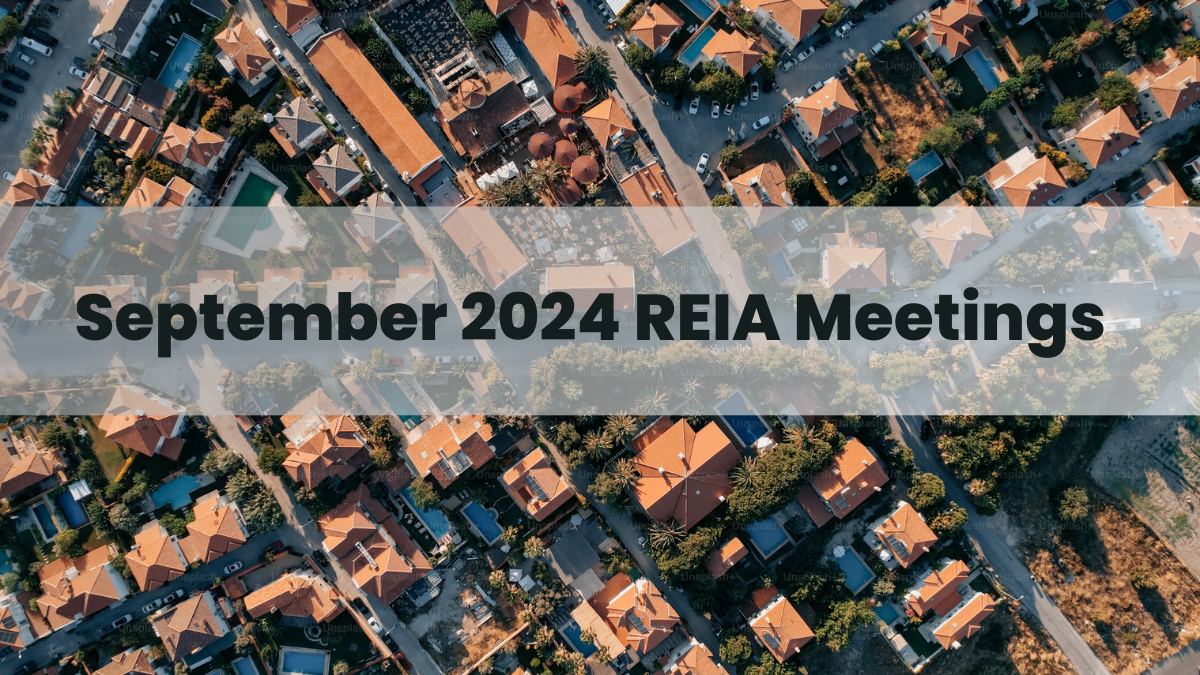Real Estate Equity
There are a variety of terms one has to learn and understand to be successful in the business of real estate investing. One such term that real estate investors pay close attention to is real estate equity. It’s a term that any homeowner (investors and non-investors alike) needs to know. Knowing how to build and use equity in real estate investing is critical to your success.
What is Equity in Real Estate?
Before we discuss why equity is important to investors, let’s take a moment to first understand the question, “what is equity?”
Simply put, equity is the difference between the market value of a property and the amount of money owed on the mortgage. So, for example, let’s say an investor finds a house for $200,000. With help from a lender, the investor is able to purchase the property, after paying a down payment of 20%, or $40,000. That down payment of $40,000 is the initial equity the investor has on this property.
However, equity doesn’t just stop there. Sometimes an investor can have more equity from the get-go based on a few different factors. An investor might be able to have greater real estate equity if he or she puts more money into the down payment, or if the property is purchased below market value.
Let’s say our imagined investor finds a house with a market value of $200,000 but manages to get the sale for $190,000. With a 20% down payment of $40,000, the investor adds another $10,000 to his or her initial equity because the house was purchased below market value.
In essence, equity boils down to the amount of money you have invested in a property, and how much you’ll receive when you sell the property. So, the question then becomes, “can I grow my equity?”
Yes, you can!

The Equity Plant: How to Grow Your Equity
Real estate equity is, and always will be, a fluctuating number. It can grow, and it can wither, so as an investor, you want to make sure you water the plant that is your equity. Sometimes you won’t know what your equity looks like until you sell the property, but there are ways to keep tabs on it. Here are some of the ways investors typically grow their equity:
The down payment: As mentioned before, your down payment is the root of your equity. If you can pay more than the minimum percentage that your lender is asking, then you should be willing to do so. What if your lender asks for 20%, but you can afford to pay 25%? It’s good advice to go ahead and cover 25%. This will lessen the amount of your mortgage.
Mortgage payments: Simply just paying back your mortgage increases your equity. Paying it back on time also helps you avoid any late penalties. However, if you’re financially able to make a larger mortgage payment, or are able to pay more than just the monthly payment, do so! This will help you pay off your mortgage faster, and have more of the payment money go towards your loan principal. And depending on your loan term, you could have the mortgage paid off sooner. The same principle applies to paying off any loan so use the same approach.
Improvements, additions, and renovations: As a real estate investor, this may seem obvious, but it’s important to point out. You’ve likely bought a property to fix and flip at a later date. You know that making improvements can increase the after-repair-value (ARV) as well. Making improvements goes to your credit, and your ownership in the property—not to your lender. Whatever money you spend to make improvements can help grow your equity. Be careful though. Not all home improvements are created equal—meaning that the amount of return on your home improvement investments can vary significantly. Do your research and invest in those improvements that traditionally bring in the most return at home sales.
Time: Sometimes the only thing you can do to grow your equity is hold and wait. Houses and properties will appreciate over time, and real estate markets will fluctuate. If the value of the property goes up over time, then so does your equity.

Remember, your equity is a representation of your ownership of the property. There are ways that it can grow if you water and monitor it correctly—the more you own, the more your equity plant grows.
How Your Real Estate Equity Plant Withers
Unfortunately, the flip side to growing your real estate equity is that you can also lose equity. Try as you might, there are just some factors that are out of your control. Let’s take a look at some ways your equity plant can wither:
Mortgage refinancing: While there are options to access your equity without selling the property, most of them involve accessing the equity and having to pay it back later. Options like a home equity loan, home equity loan of credit (HELOC), or a cash-out refinance are available, and in some cases, might be necessary to pursue. But just know that these options are almost the equivalent of taking out a second mortgage. They’re good options to have available if you need to tap into your equity before selling (if you’re in a position where you need the cash). However, these will need to be paid back later, and thus decreases your equity.
Damages: Sometimes damages are unforeseen and will need to be taken care of. These damages may cause you to pursue one of the refinancing options listed above to take care of the issue. Since a damaged house is hard to sell, making the necessary fixes is just a part of maintaining your property, and not always considered an improvement. Speaking of . . .
Lack of maintenance: A general lack of maintenance on your property is an easy way to lose equity. Perhaps your holding time goes longer than you anticipated, but that shouldn’t be an excuse to ignore your property. This type of negligence can lead to unnecessary and costly repairs. Any savvy investor should always keep up with their property.
Market depreciation: The possibilities above are mostly avoidable, depending on the circumstances. However, there is one way that your real estate equity can decrease that is beyond your control: the real estate market cycle. Economic downturns can cause your market area to see an overall decline in market value prices. Try as you might to avoid it, a depreciation in your property is a possibility.
Unfortunately, losing equity in your property is a real possibility. However, if you keep regular tabs on your property and heed the advice above, you should be able to minimize your equity losses.

Why Real Estate Equity Is Important to Investors
Real estate investors pay close attention to their equity since for some, it’s what funds their next deal.
The equity we’ve been mentioning is called the gross equity, or the overall amount of money that an investor has invested in the property. Again, that number includes:
- The down payment
- Money put into improvements, renovations, additions, etc.
- Mortgage payments
- Appreciation
But when it comes time to sell the property, there are going to be fees attached to the sale. Unless you have your real estate license, you’ll have to pay your agent’s commission costs. You’ll have to pay any unpaid property taxes, as well as any closing costs not paid by your buyer. The resulting equity is what we call your net equity, and it’s the amount of money you’ll actually receive once the sale has been completed. We suggest using the money as a future down payment for another project or use it to grow your business.
Use your equity on one of the great deals here on MyHouseDeals. Our site offers thousands of properties for you to invest in, and if you upgrade to Premium, you’ll see properties sooner.
Return on Equity
Up until now, we’ve been talking about properties that don’t have tenants or a cash flow. However, as an investor, you’re going to come across rental properties. Having tenants leads to having cash flow, which results in a return on equity (ROE).
ROE is a percentage that measures the return on your property compared to the total equity you have. Let’s imagine a hypothetical for a moment. An investor purchased a property for $200,000, with a down payment of 20%, and financed the rest. Let’s say this property also generates an annual cash flow of $4,000. The investor’s ROE for this property would be:
$4,000 cash flow / $40,000 (the down payment) = 10%
Not bad!
Keep in mind that ROE, just like the real estate equity itself, is a fluctuating number. As you make more improvements on your property, as time passes, your equity will increase. And yes, the rent can go up because of those improvements too.
Once Your Plant Starts Budding
Growing your real estate equity is a process that takes time. Giving your plant a good root (the down payment) is the best start for it to grow, but it’s up to you as the investor to water your equity properly.
Some key takeaways:
- Equity = market value minus what you owe on your mortgage
- Equity starts with your down payment (and the spread between the purchase price and current market value)
- There are several solid ways to grow your real estate equity
- There are ways your equity can decrease too
- Rental properties give you a return on your equity
Understanding how to manage equity is a crucial part of being a successful real estate investor. Growing your equity and getting a sizable amount of ownership in your investment properties should be one of your primary goals. Ultimately, as an investor, you want to maximize the net equity you receive for each property you sell. This will give you more investment power to jump on that next great property that comes along. Don’t miss it!
Happy (and profitable) investing!





